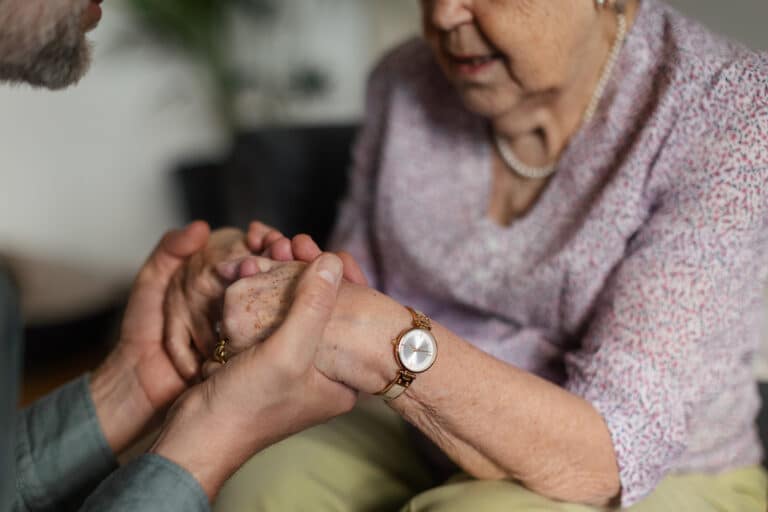Caring for seniors with dementia can feel overwhelming for family caregivers, especially when communication needs change abruptly. Learning how to manage these communication needs is not necessarily easy to do, but having the right help smooths the path. Memory care experts at adult day centers offer lots of tools to support families and seniors with dementia. One technique that they use often is nonverbal communication and it’s easy to incorporate.
What Is Memory Care?
Memory care is specifically targeted to help seniors who have memory and cognitive trouble because of Alzheimer’s disease, dementia, or other cognitive ailments. Care focuses on keeping seniors engaged, comfortable, and safe while also providing stimulation for their brains and bodies. The activities involved range from physical activity, like chair yoga, to music therapy, art therapy, games, crafting, and so much more.
Nonverbal Communication in Dementia Care
Nonverbal communication involves using facial expressions, gestures, tone of voice, and other body language to convey information. For seniors who are struggling to use verbal communication skills like they used to, nonverbal communication can bridge that gap. Seniors with dementia may use nonverbal communication themselves to convey their needs and wants. Memory care specialists understand how valuable this type of communication is for seniors with dementia.
Individualized Care Plans
Every person with dementia is unique, and their communication needs are equally unique. Memory care specialists are able to provide each of their patients with dementia with a unique care plan that suits their needs. These plans include lots of information about specific gestures and cues that work best for each particular patient.
Calming Environments Help
Seniors with dementia fare best in environments that are relaxed and conducive to calm interactions. Memory care specialists understand this and work hard to create these types of calm environments for their patients. Soothing colors and carefully curated spaces work alongside tools like nonverbal communication to ensure that seniors with dementia have a positive experience.
Therapeutic Activities
Memory care also involves helping seniors to enjoy therapeutic activities. Art therapy, music therapy, and other types of sensory activities help seniors with dementia to express themselves and to stay engaged with activities and people around them. There is so much room in these therapeutic activities for seniors with dementia to feel heard, even when using nonverbal communication skills.
Educating Family Members
This type of care also helps family members to learn more about what types of nonverbal communication works best for the people they love. Caregivers are able to share what they’ve learned works best and ensure that family members understand how to use that information when helping the seniors they love. This help is invaluable and equips them with skills that they can use every day.
Memory care offers a wide range of different tools that family members and seniors with dementia can use in order to make life easier, safer, and happier for those seniors. Nonverbal communication is an easy skill to master and it allows family members to engage with the seniors they love with empathy and dignity.
Oxnard Family Circle: Safe, Reliable, Social and Fun!
If you need respite and/or help with caring for your loved one in any corner of Ventura County, CA (Oxnard, Port Hueneme, Ventura, Camarillo, etc.), talk to the caring staff at Oxnard Family Circle ADHC. today. 1-805-385-4180
- Talking About Senior Care Services with Aging Adults - May 27, 2025
- How Can Seniors with Parkinson’s Disease Get Daily Support? - May 9, 2025
- What Can Physical Therapy Do for Seniors with Arthritis? - April 25, 2025



